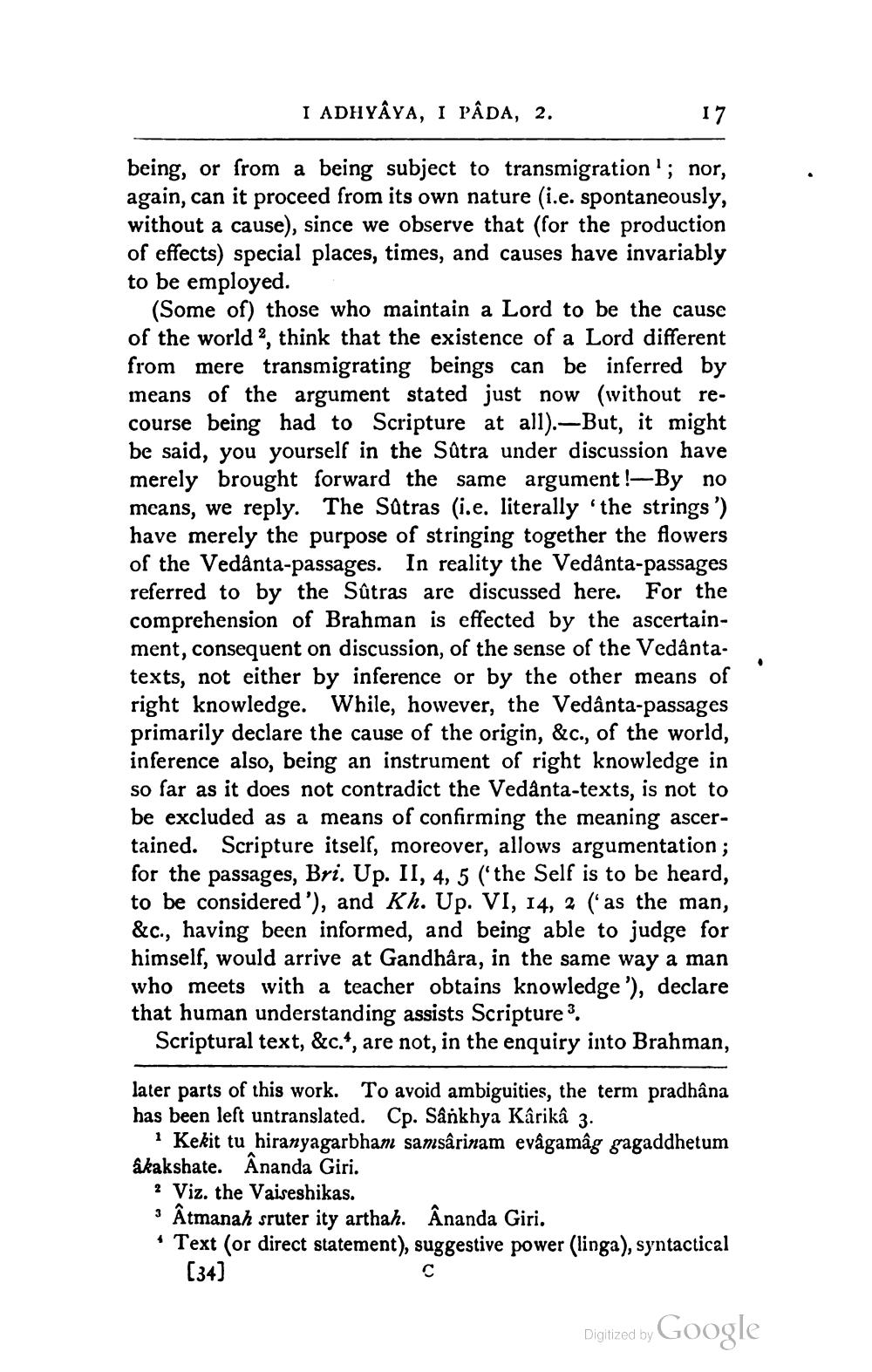________________
I ADHYAYA, I PÂDA, 2.
17
being, or from a being subject to transmigration'; nor, again, can it proceed from its own nature (i.e. spontaneously, without a cause), since we observe that (for the production of effects) special places, times, and causes have invariably to be employed.
(Some of) those who maintain a Lord to be the cause of the world, think that the existence of a Lord different from mere transmigrating beings can be inferred by means of the argument stated just now (without recourse being had to Scripture at all).—But, it might be said, you yourself in the Sûtra under discussion have merely brought forward the same argument !-By no means, we reply. The Satras (i.e. literally 'the strings ') have merely the purpose of stringing together the flowers of the Vedanta-passages. In reality the Vedanta-passages referred to by the Sûtras are discussed here. For the comprehension of Brahman is effected by the ascertainment, consequent on discussion, of the sense of the Vedantatexts, not either by inference or by the other means of right knowledge. While, however, the Vedânta-passages primarily declare the cause of the origin, &c., of the world, inference also, being an instrument of right knowledge in so far as it does not contradict the Vedanta-texts, is not to be excluded as a means of confirming the meaning ascertained. Scripture itself, moreover, allows argumentation; for the passages, Bri. Up. II, 4, 5 ('the Self is to be heard, to be considered '), and Kh. Up. VI, 14, 2 ( as the man, &c., having been informed, and being able to judge for himself, would arrive at Gandhâra, in the same way a man who meets with a teacher obtains knowledge'), declare that human understanding assists Scripture 3.
Scriptural text, &c.*, are not, in the enquiry into Brahman,
later parts of this work. To avoid ambiguities, the term pradhana has been left untranslated. Cp. Sankhya Karika 3.
Kekit tu hiranyagarbham samsârinam evågamag gagaddhetum akakshate. Ânanda Giri.
? Viz. the Vaiseshikas. • Ātmanah sruter ity arthah. Ânanda Giri. • Text (or direct statement), suggestive power (linga), syntactical
(34)
Digitized by
Digitized by Google




